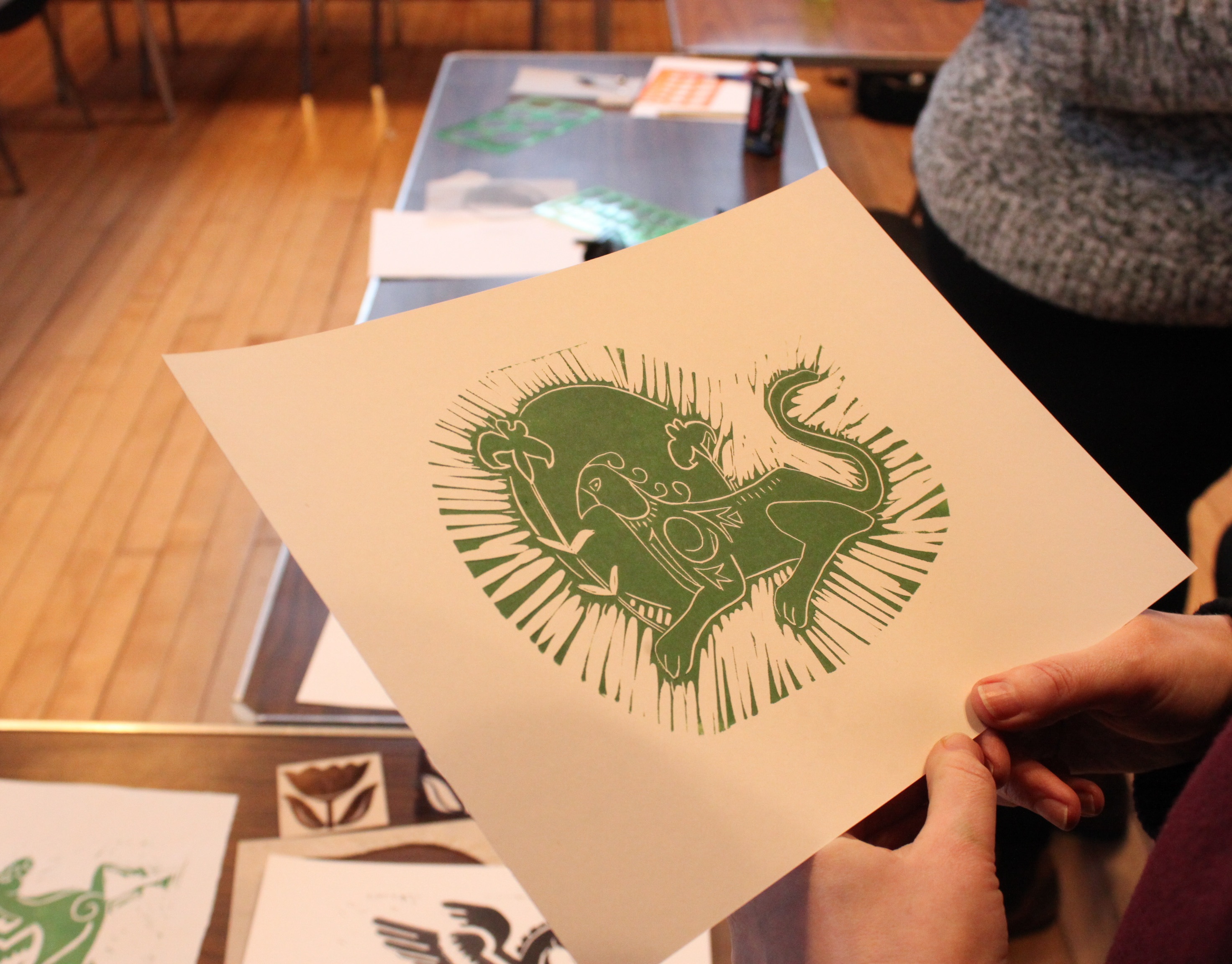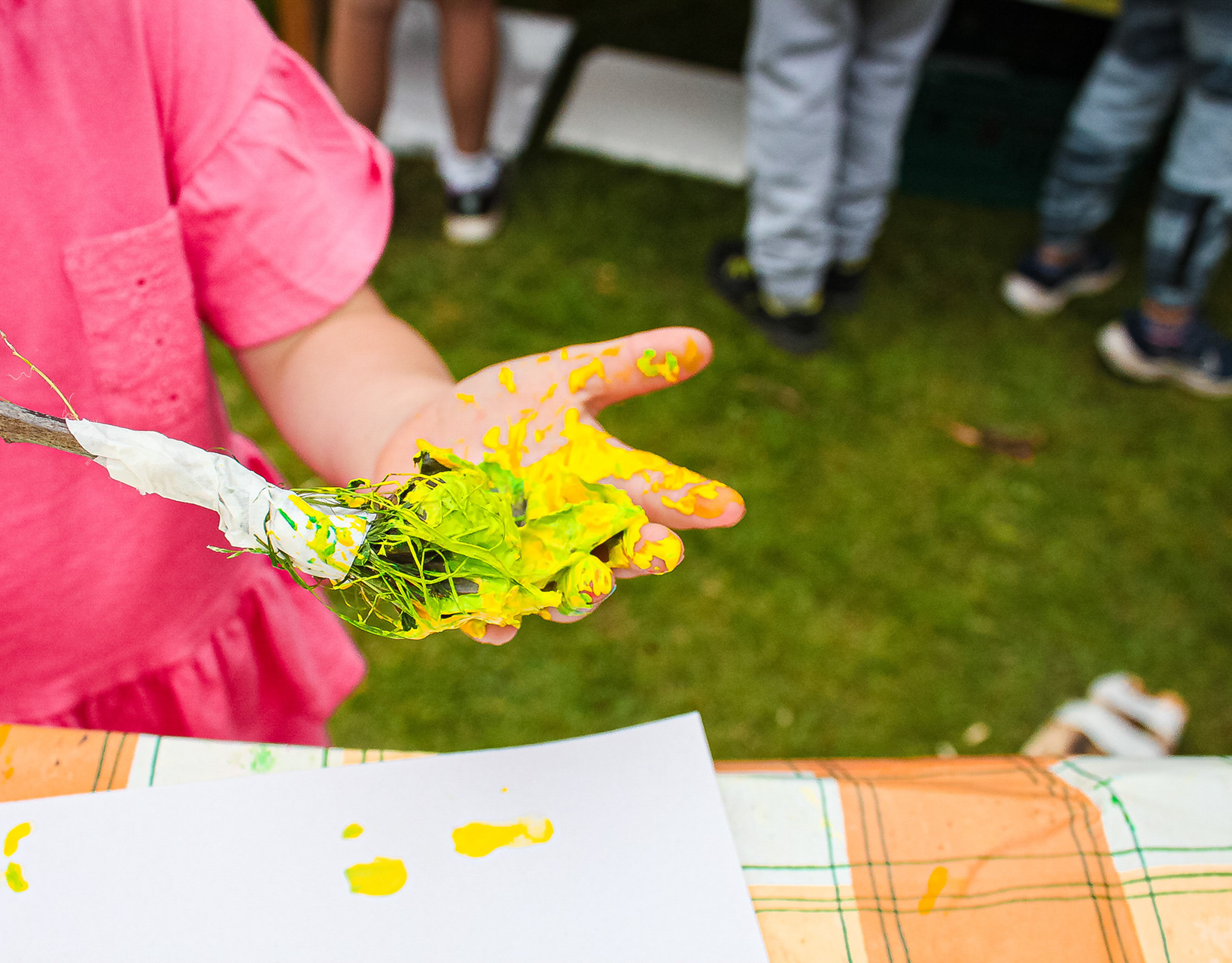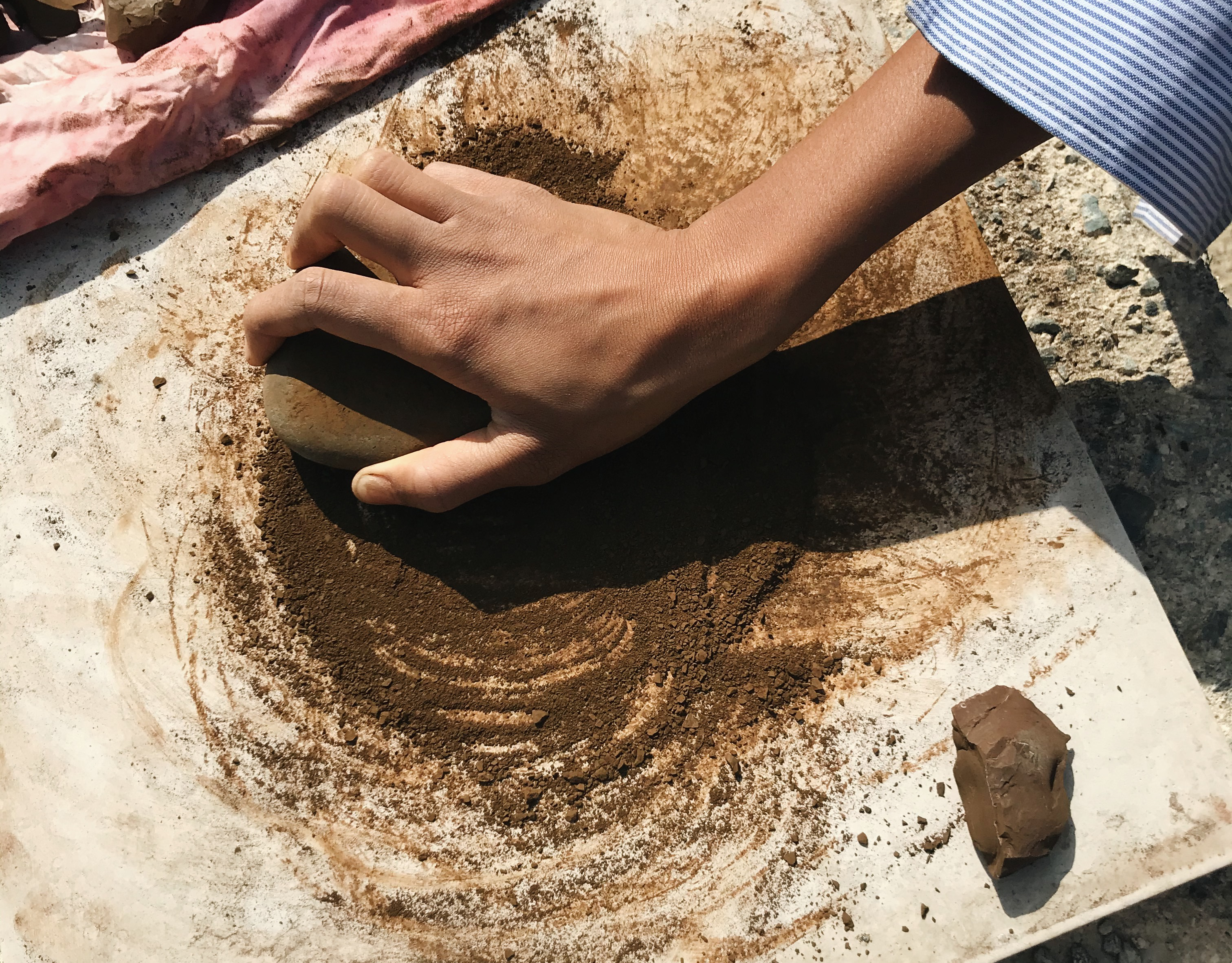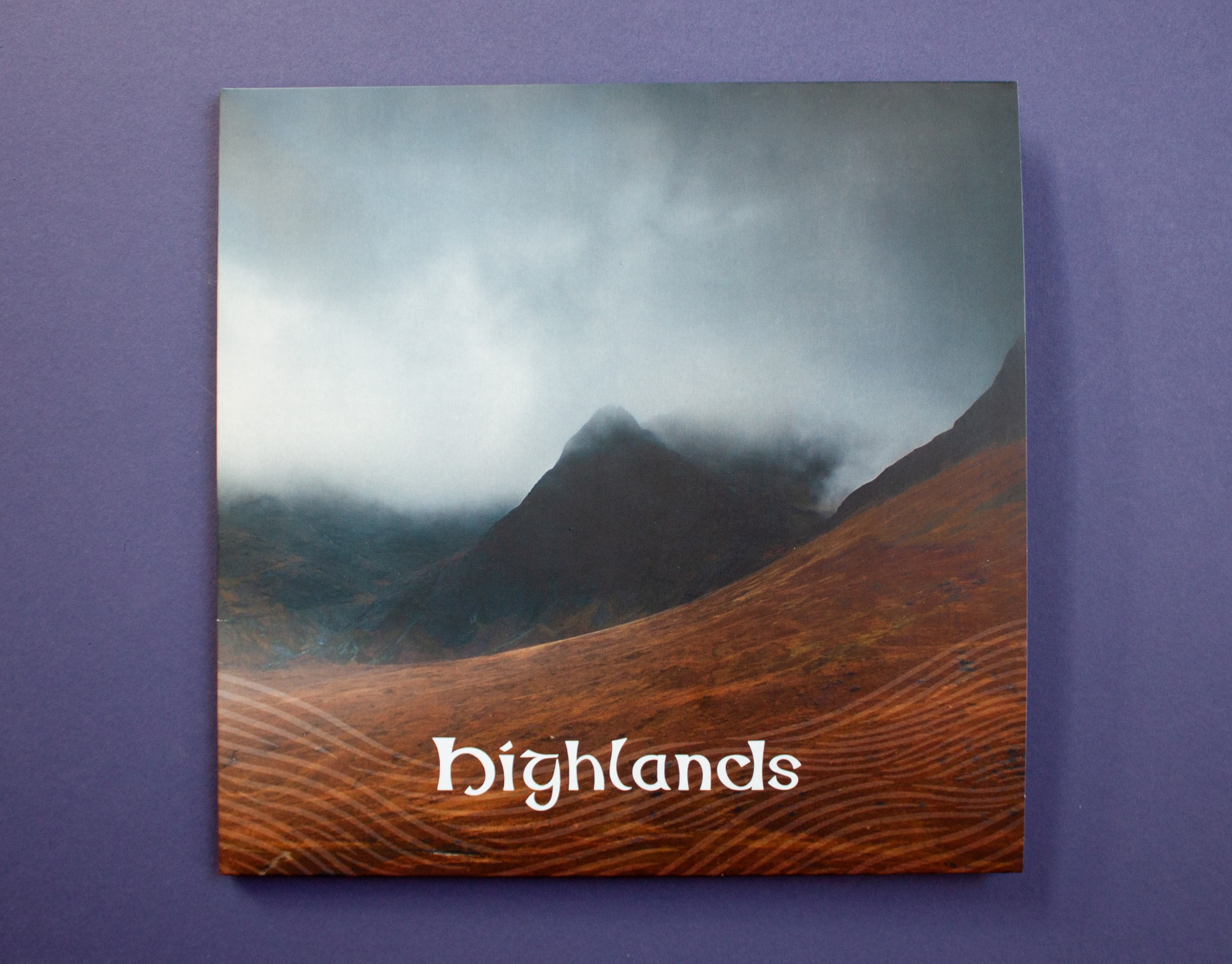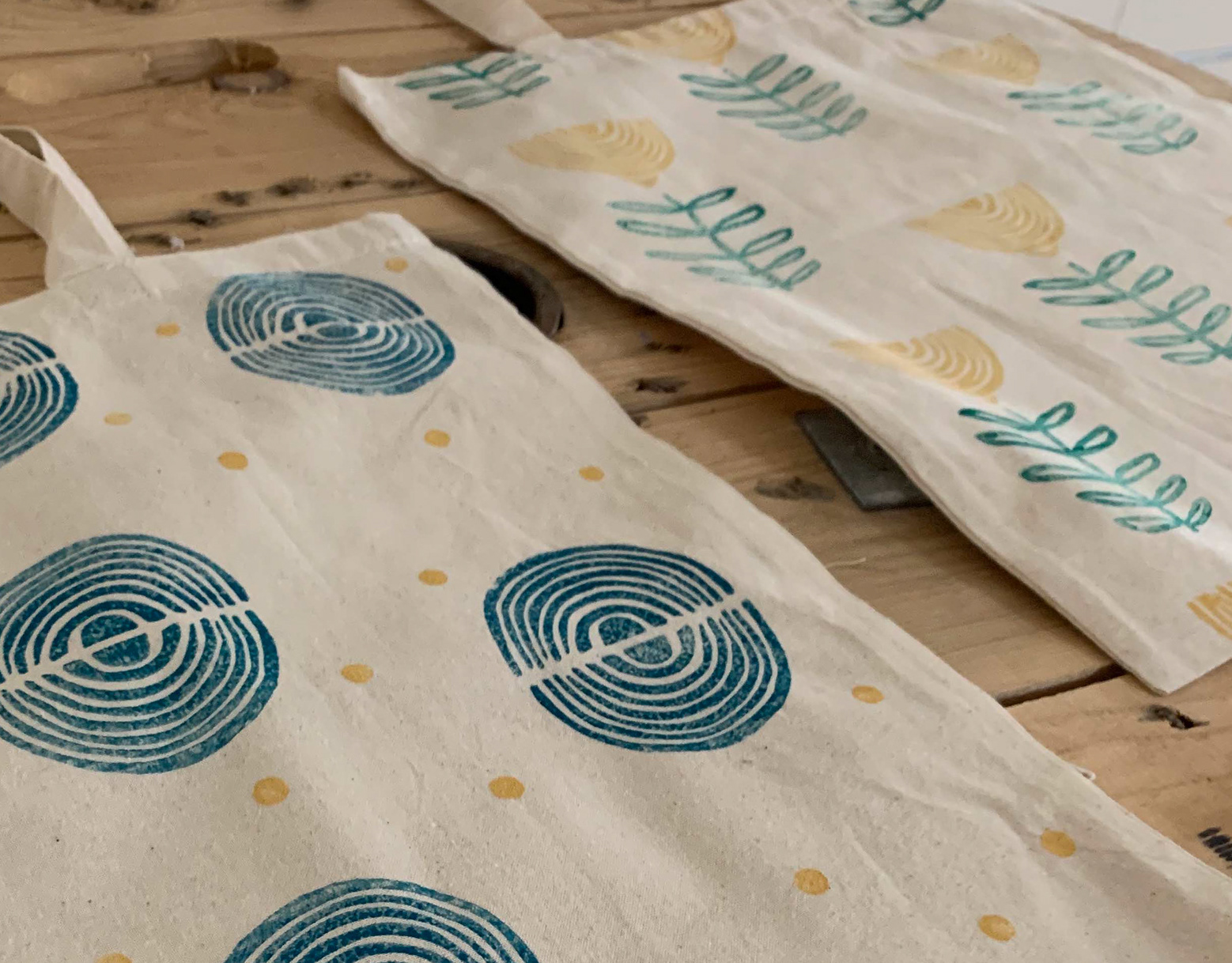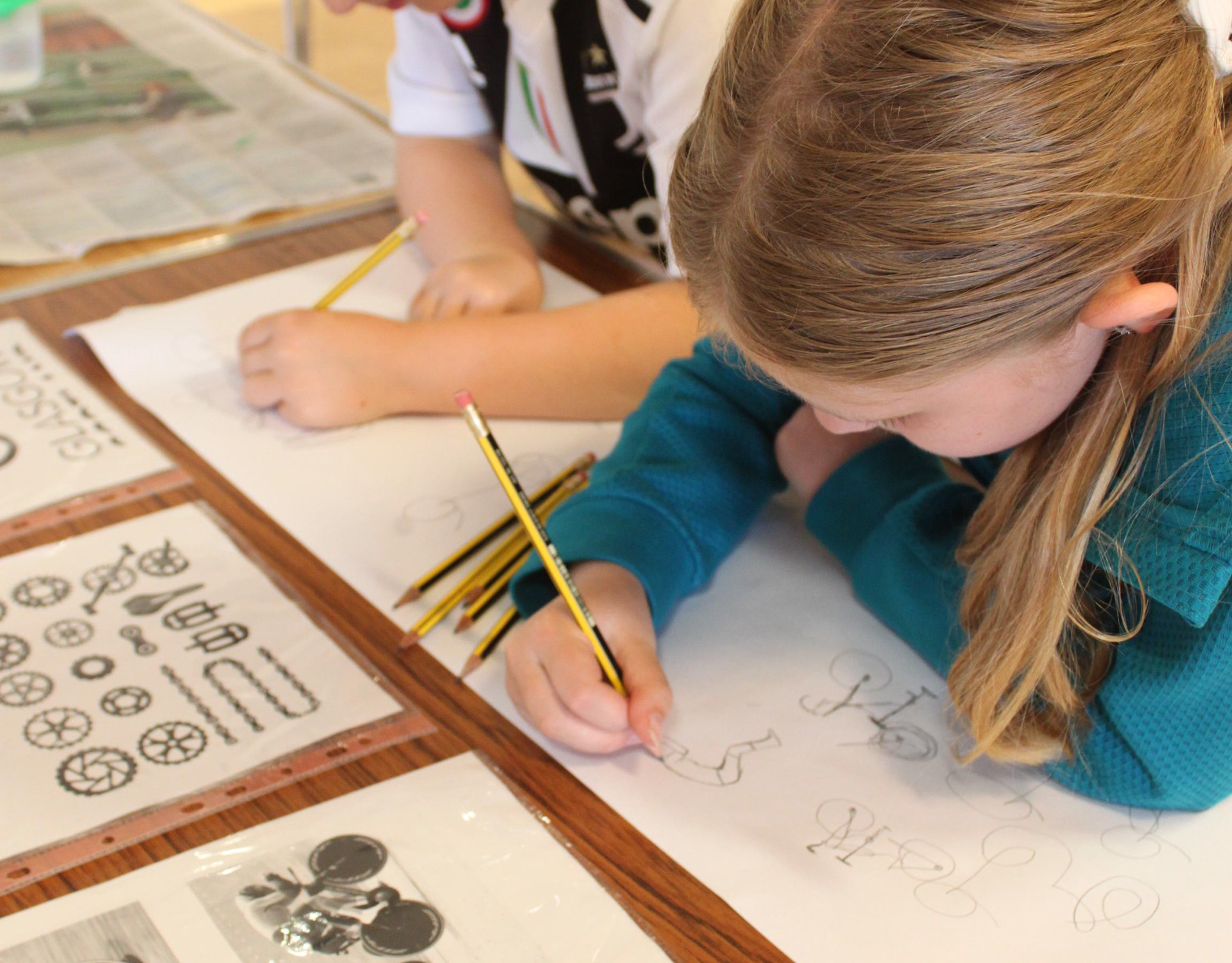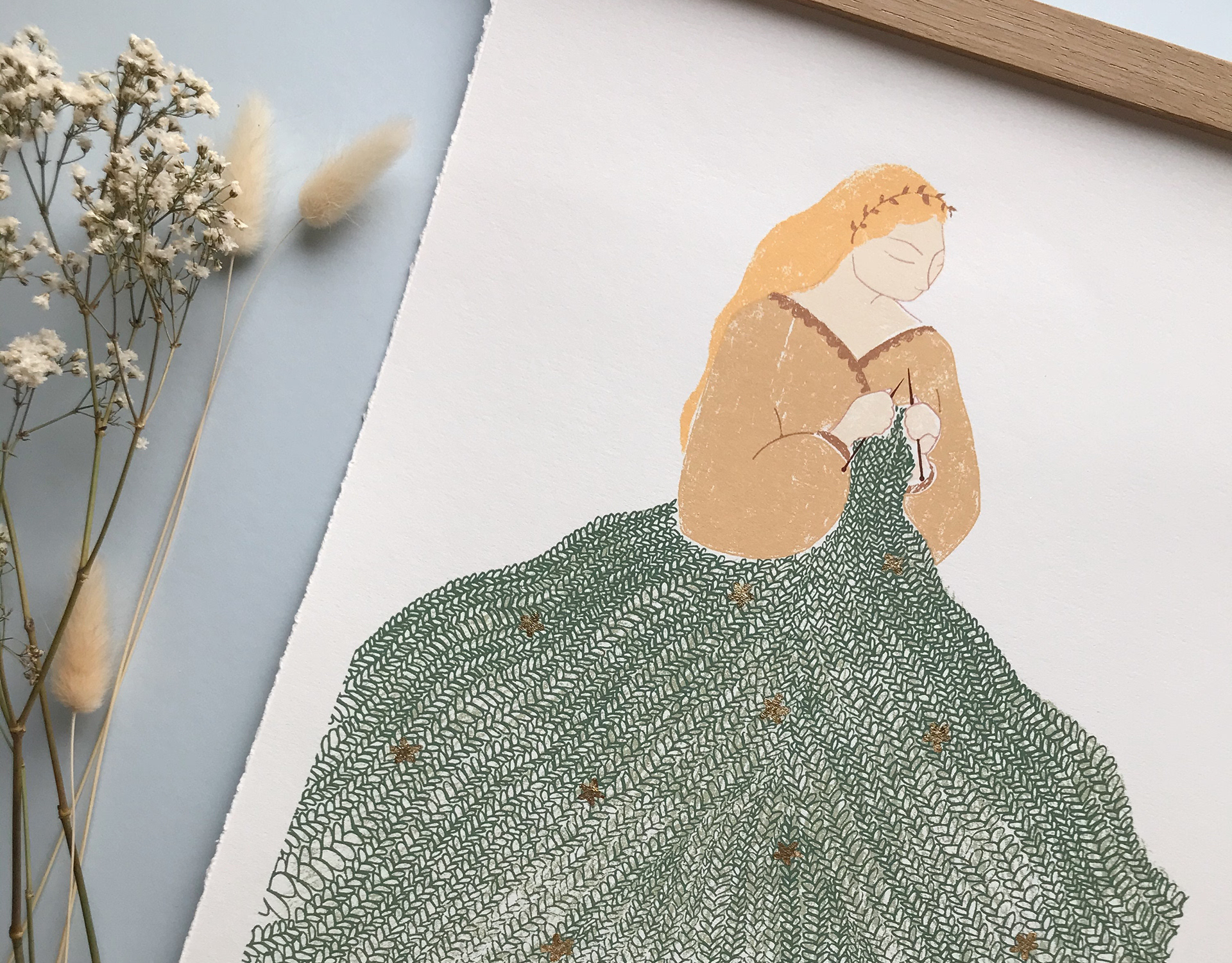Myself and Hridita's final pieces on display at Tara Theatre
Left to right: Tia Ali, Rupinder Kaur, Thahmima Begum, Ruby Kitching, Abbie Lois, Kamilah Ahmed
Gratitude to Tara Theatre and Britto Arts Trust for choosing me to be a part of this unique project, and to Arts Council England for funding the project.
This is my first screen print of six depicting this ancient tale. Here, I am beginning the story of Bonbibi - her mother, Golalbibi, has been exiled deep into the forest by her husband, and husband’s first wife. She is left alone to give birth to her twin babies in the forest. When she gives birth to a girl and a boy, she is at a loss for what to do - how can she raise two babies, alone in the wild? She contemplates leaving them, but is scorned for her selfishness by a female deer. She ends up taking the boy, and leaving the girl. This girl, Bonbibi, is taken care of by the female deer - learning the ways of the forest all the while - until she becomes old enough to leave the forest on her own accord.
This is my second screen print of six depicting this ancient tale. Once Bonbibi leaves the forest, the demon half man, half tiger Dakshin Rai takes control of the land. He regularly takes human sacrifices from those who live there, and demands that they pray to him as lord of the forest.
This is my third screen print of six depicting this ancient tale. This print shows Bonbibi returning to the forest many years later as a grown woman. She is depicted in many tales as having a ‘jungle fowl’ as a steed, so of course I went with that to mark her royal entrance! She returns to bring peace to the forest, first seeking out the demon Dakshin Rai.
This is my fourth screen print of six depicting this ancient tale. When Bonbibi returns to the forest, she searches out for the demon tiger king Dakshin Rai. When she finds him and they begin to fight, his mother, Narayani, intervenes and tells him he needn’t fight a woman, so she will fight in his place. Narayani gathers a fleet of demons and they go to battle against Bonbibi.
This is my fifth screen print of six depicting this ancient tale. After Narayani and Bonbibi finish their battle, with Bonbibi the victor, they come to an agreement that Dakshin Rai will be cast deep into the shadows of the forest, as ruler there instead.
This is my last screen print of six depicting this ancient tale. After banishing Dakshin Rai to the depths of the forest, Bonbibi becomes the guardian of the forest, protecting those that live within its boundaries from tigers and other dangers. All she asks is that they call her name should they be in any danger, and that no one who enters takes more of its resources than what’s necessary. If they are greedy and take too much, she will not protect them, and will fall prey to Dakshin Rai.
The reverse of the pieces - I researched traditional textiles examples in Bangladesh to use as inspiration for the design.
On the middle section on the reverse, shows the Bengali script which is said to be uttered before entering the forest, as a protective verse against tigers and other dangers. It was believed that if you took too much from the forest out of greed, Bonbibi would turn away from you, leaving you at the mercy of the evil tiger demon Dakshin Rai.
বিপদে পড়িয়া বনে যেই জন ডাকে
'মা' বলিয়া বোন বিবী দয়ার মাতাকে
উদ্ধারে তাহার তরে আপনার গুণে
মায়ের জহুরা কত লিখিব এখানে
My two final pieces alongside the reverse of one, together as a triptych on display at Contact Theatre, Manchester

